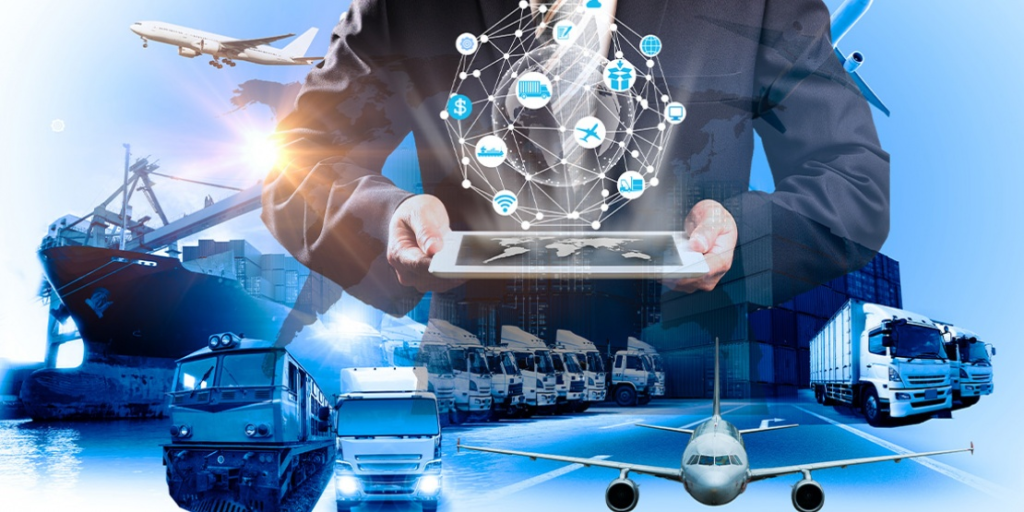In today’s fast-paced global market, technology has become a crucial factor in transforming supply chain management (SCM). With the rise of advanced tools like artificial intelligence (AI), the Internet of Things (IoT), and blockchain, businesses are streamlining operations, reducing costs, and improving transparency throughout their supply chains. This post explores the competitive advantages technology offers and how businesses can leverage these innovations to stay ahead of the competition.
The Role of Technology in Modern Supply Chains
The integration of technology in supply chains is no longer optional—it’s essential. From procurement and production to distribution and logistics, tech solutions are revolutionizing how businesses operate.
- Automation is improving efficiency by handling repetitive tasks and reducing manual errors.
- Real-time data tracking allows businesses to monitor their supply chains more closely and respond to disruptions quickly.
With technology, companies can gain greater control and visibility over their operations, improving both decision-making and customer satisfaction.
Artificial Intelligence (AI) in Supply Chain Management
AI is transforming supply chain management by automating decision-making processes and providing predictive analytics. AI’s ability to analyze large data sets helps businesses forecast demand, optimize inventory, and reduce lead times.
- Demand Forecasting: AI algorithms analyze market trends, historical data, and external factors to predict future demand more accurately, helping businesses avoid overstocking or stockouts.
- Process Optimization: AI tools can identify inefficiencies in supply chain operations and suggest solutions, improving overall performance and reducing costs.
The result? Businesses can respond to market changes faster, reduce waste, and ensure timely deliveries.
The Internet of Things (IoT) Enhancing Supply Chain Visibility
The IoT plays a pivotal role in providing real-time visibility throughout the supply chain. IoT-enabled devices, such as sensors and GPS trackers, allow businesses to monitor the movement of goods and track environmental conditions (e.g., temperature, humidity) during transit.
- Real-time Tracking: With IoT, businesses can track shipments in real time, ensuring timely delivery and improving customer satisfaction.
- Predictive Maintenance: IoT devices on machinery can predict potential failures before they happen, minimizing downtime and maintenance costs.
By leveraging IoT, businesses can improve the reliability of their supply chains and provide better service to their customers.
Blockchain Technology for Supply Chain Transparency
Blockchain is revolutionizing supply chain transparency by offering a secure, decentralized way to track transactions and ensure the authenticity of products. This technology is especially beneficial for industries like food, pharmaceuticals, and luxury goods, where trust and traceability are critical.
- Enhanced Transparency: Blockchain creates a tamper-proof record of every transaction, giving businesses and consumers confidence in the authenticity and quality of products.
- Reduced Fraud: The decentralized nature of blockchain makes it nearly impossible for bad actors to alter records or tamper with shipments, reducing the risk of fraud.
Blockchain also enables seamless collaboration between multiple parties, from suppliers to manufacturers, ensuring everyone has access to the same verified data.
Cloud Computing for Scalability and Collaboration
Cloud computing offers flexibility and scalability, allowing businesses to manage their supply chains more efficiently. Cloud-based supply chain management systems enable real-time data sharing, making it easier for stakeholders across the globe to collaborate and make informed decisions.
- Scalability: Businesses can easily scale their supply chain operations by adding or removing resources as needed without investing in expensive infrastructure.
- Cost Efficiency: Cloud services often follow a pay-as-you-go model, allowing businesses to reduce operational costs and only pay for what they use.
With cloud-based solutions, businesses can adapt to changing market conditions more quickly and improve communication across global supply chains.
Automation and Robotics for Streamlined Operations
Automation and robotics are transforming the way warehouses and distribution centers operate. By automating repetitive tasks like sorting, packaging, and inventory management, businesses can reduce human error and increase efficiency.
- Warehouse Automation: Automated guided vehicles (AGVs) and robotic arms are speeding up warehouse processes, ensuring that products are picked, packed, and shipped with greater accuracy.
- Labor Cost Reduction: With robots taking over repetitive and time-consuming tasks, businesses can reduce their labor costs and reallocate human resources to more strategic roles.
Automation not only boosts efficiency but also helps businesses meet customer demands for faster delivery.
Sustainability and Eco-Friendly Supply Chain Solutions
Technology is also driving the move toward more sustainable supply chains. Companies are using tech tools to minimize waste, reduce carbon footprints, and optimize the use of resources.
- Energy-Efficient Logistics: AI-powered route optimization can reduce fuel consumption and emissions by selecting the most efficient delivery routes.
- Sustainable Sourcing: Blockchain ensures that products are sourced ethically and sustainably by providing a verifiable record of every step in the supply chain.
Sustainability is becoming a competitive advantage, as consumers and partners prefer to work with businesses that prioritize eco-friendly practices.
Looking to optimize your supply chain with cutting-edge technology? At EnlaceNexo Comercio, we provide innovative solutions that help businesses enhance their supply chain operations and navigate the complexities of international trade. Contact us today to learn how we can help you stay competitive in the digital age.

0 Comments Leave a comment